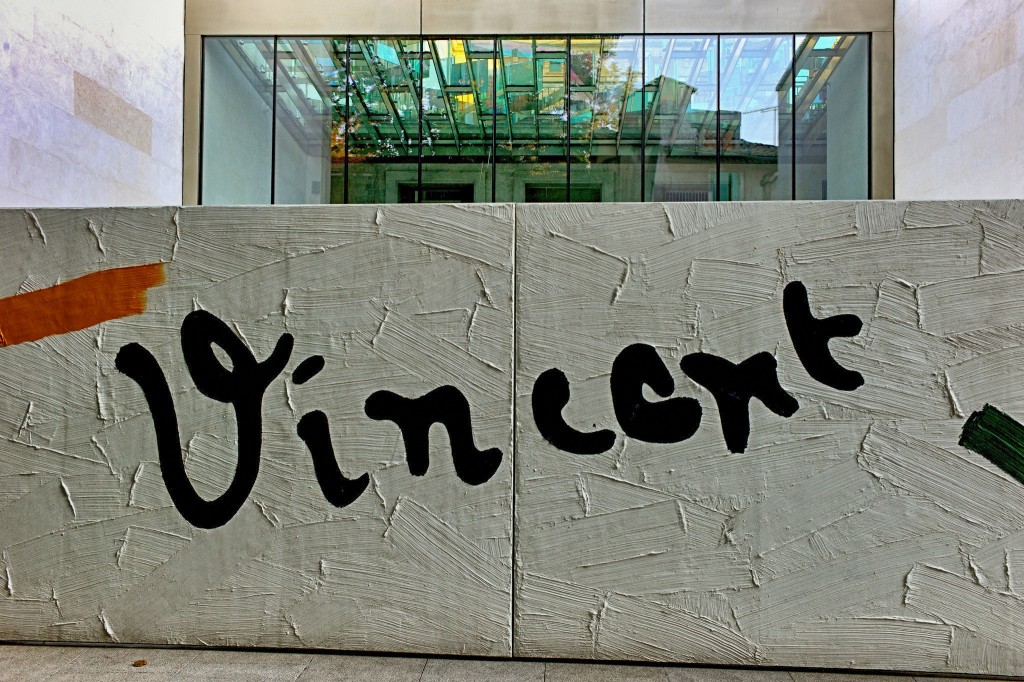It’s been very dry in France this summer. But I hadn’t realised how dry until I came on this bridge in Châtillon-sur-seine, which is quite near the source of the river in Burgundy.
A better mousetrap
The 15% refuseniks
From the latest PEW survey:
For the first 13 years of the decade, Americans embraced the Internet at a whirlwind pace. The percentage of Americans who use the Internet grew to 84 percent in 2013 from 52 percent at the turn of the century, according to data from the Pew Research Center.
But since 2013, the percentage of American adults who go online has remained virtually unchanged, according a new Pew study released on Tuesday. The 15 percent of Americans who still do not use the Internet is essentially the same portion as in 2013.
So why the slowdown?
Pew found that Americans who remain offline do so for a number of reasons: the cost of buying a computer and paying a broadband or cellphone bill, the perceived relevance of Internet content or even the physical ability to use devices.
Want to network your Jeep Cherokee? Try smoke signals: they’re safer
This morning’s Observer column:
‘‘Jeep Cherokee hacked in demo; Chrysler owners urged to download patch”, was the heading on an interesting story last week. “Just imagine,” burbled the report, “one moment you’re listening to some pleasant pop hits on the radio, and the next moment the hip-hop station is blasting at full volume – and you can’t change it back! This is just one of the exploits of Charlie Miller and Chris Valasek … when they hacked into a Jeep Cherokee. They were able to change the temperature of the air conditioning, turn on the windshield wipers and blast the wiper fluid to blur the glass, and even disable the brakes, turn off the transmission, take control of the steering, and display their faces onto the dashboard’s screen.”
In some ways, this was an old story: cars have been largely governed by electronics since the 1980s, and anyone who controls the electronics controls the car. But up to now, the electronics have not been connected to the internet. What makes the Jeep Cherokee story interesting is that its electronics were hacked via the internet. And that was possible because internet connectivity now comes as a consumer option – Uconnect – from Chrysler.
If at this point you experience a sinking feeling, then join the club. So let us return to first principles for a moment…
LATER: Chrysler has issued a recall for 1.4 million vehicles as a result of the hacking revelations.
Three generations
You don’t say
Well, well. The New York Times is reporting that the penny may have finally dropped in Washington:
WASHINGTON — American officials are concerned that the Chinese government could use the stolen records of millions of federal workers and contractors to piece together the identities of intelligence officers secretly posted in China over the years.
The potential exposure of the intelligence officers could prevent a large cadre of American spies from ever being posted abroad again, current and former intelligence officials said. It would be a significant setback for intelligence agencies already concerned that a recent data breach at the Office of Personnel Management is a major windfall for Chinese espionage efforts.
Flag day
Living through an earthquake
Astonishing video made by Steve Goldberg during the 2011 Japanese earthquake. Apart from the footage, what’s remarkable is how calm he seems to be.
Van Gogh: texture, colour and light
There’s a lovely passage in Julian Barnes’s review of Ever Yours: The Essential Letters of Vincent Van Gogh
We have a problem of seeing, just as we often have a problem hearing (or hearing clearly), say, a Beethoven symphony. It’s hard to get back to our first enraptured seeings and hearings, when Van Gogh and Beethoven struck our eyes and ears as nothing had before; and yet equally hard to break through to new seeings, new hearings. So we tend, a little lazily, to acknowledge greatness by default, and move elsewhere, away from the crowds discovering him as we first discovered him. But if, seeking silence and untrammelled Van Gogh, we then retreat into the art book, we are let down differently: however faithful the colour reproduction, the flat page always suppresses the urgent impasto of the paint surface, an impasto so thickly wet that the painter was sometimes kept waiting weeks before he could safely post off his latest canvas to his dealer-brother Theo. Julian Bell, in his useful short biography and appraisal
, aptly describes Starry Night over the Rhône as ‘closer to a sculptural relief than a reproducible flat image’.
Every Summer, on our way south, we try to spend a night in Arles, and when the Foncdacion Vincent Van Gogh first opened in 2014 we made a beeline for it. And the first thing that struck me was the brilliant way the gate to the gallery captures that “urgent impasto” of the surface of a Van Gogh.
Barnes also writes very well about his use of colour:
No one did colour more blatantly and more unexpectedly than Van Gogh. Its blatancy gives his pictures their roaring charm. Colour, he seems to be saying: you haven’t seen colour before, look at this deep blue, this yellow, this black; watch me put them screechingly side by side. Colour for Van Gogh was a kind of noise. At the same time, it couldn’t have seemed more unexpected, coming from the dark, serious, socially concerned young Dutchman who for so many years of his early career had drawn and painted dark, serious, socially concerned images of peasants and proletarians, of weavers and potato-pickers, of sowers and hoers. This emergence, this explosion from darkness, has no parallel except for that of Odilon Redon (who was prompted into colour more by internal forces, whereas Van Gogh was prompted into it externally – first in Paris by the Impressionists, and then by the light of the South).
For decades I couldn’t understood Van Gogh’s use of colour — and it wasn’t for want of trying: I lived in Holland in 1997-8 and often went to the Van Gogh Museum in Amsterdam. The fog only lifted in the summer of 2003 when I came to Provence for the first time. We flew in to Montpellier after dark, and drove to our destination through a tunnel dug by the car headlights into pitch-black darkness. Then, after a restless, hot night trying to sleep, I got up at dawn and opened the shutters — and looked out on a valley full of vivid ochres, yellows and greens, illuminated by a kind of light I’d never seen before (and, as a photographer, I pay a lot of attention to light). And then, finally, I began to understand Van Gogh.
Common sense about hacking
From the Economist blog:
FOR companies, there are two strategies for dealing with people who uncover flaws in their IT security: a right way and a wrong way. Our leader on hacking this week tells of the approach that Volkswagen took when a group of academics informed it that they had uncovered a vulnerability in a remote-car-key system: the firm slapped a court injunction on them. It is difficult to conceive of an approach more likely to be counter-productive.
United Airlines, it seems, has a far more enlightened attitude. It has just awarded two hackers 1m air miles each after they managed to spot security weak spots in its website. The move is part of a scheme called “bug bounty”, in which hackers are incentivised to contact the company with security flaws, rather than post them online. This approach is common at Silicon Valley firms, and makes just as much sense for old-fashioned industries too. Pound to a penny, there are nefarious types out there trying to break into most big companies’ IT systems. Encouraging “white-hat” hackers to uncover flaws, and then rewarding them for not revealing them to the wider world, may sit uncomfortably with people’s sense of fairness. However, if it gives firms time to fix the problem, in pragmatic terms the benefit is obvious.
Yep.






